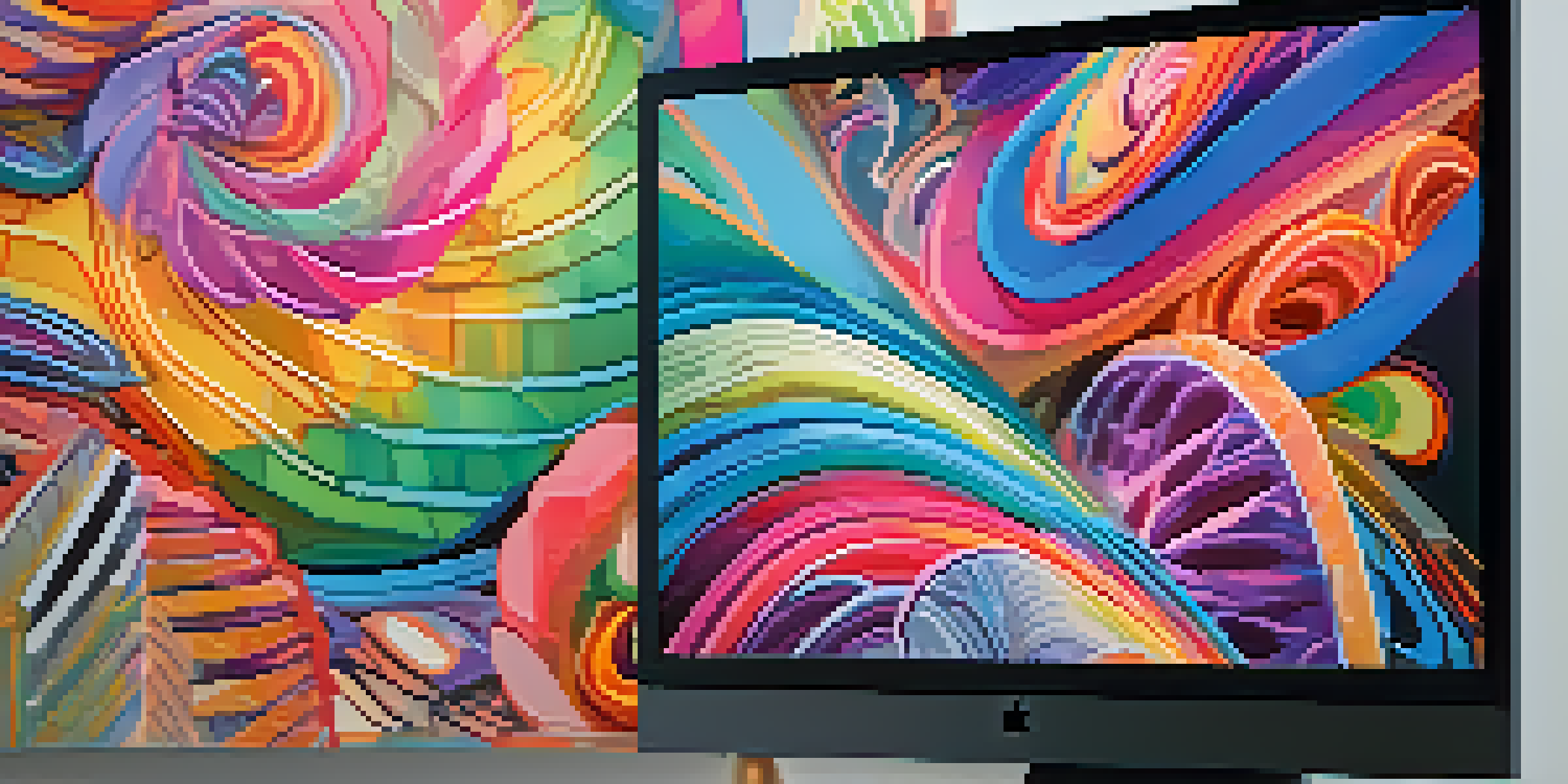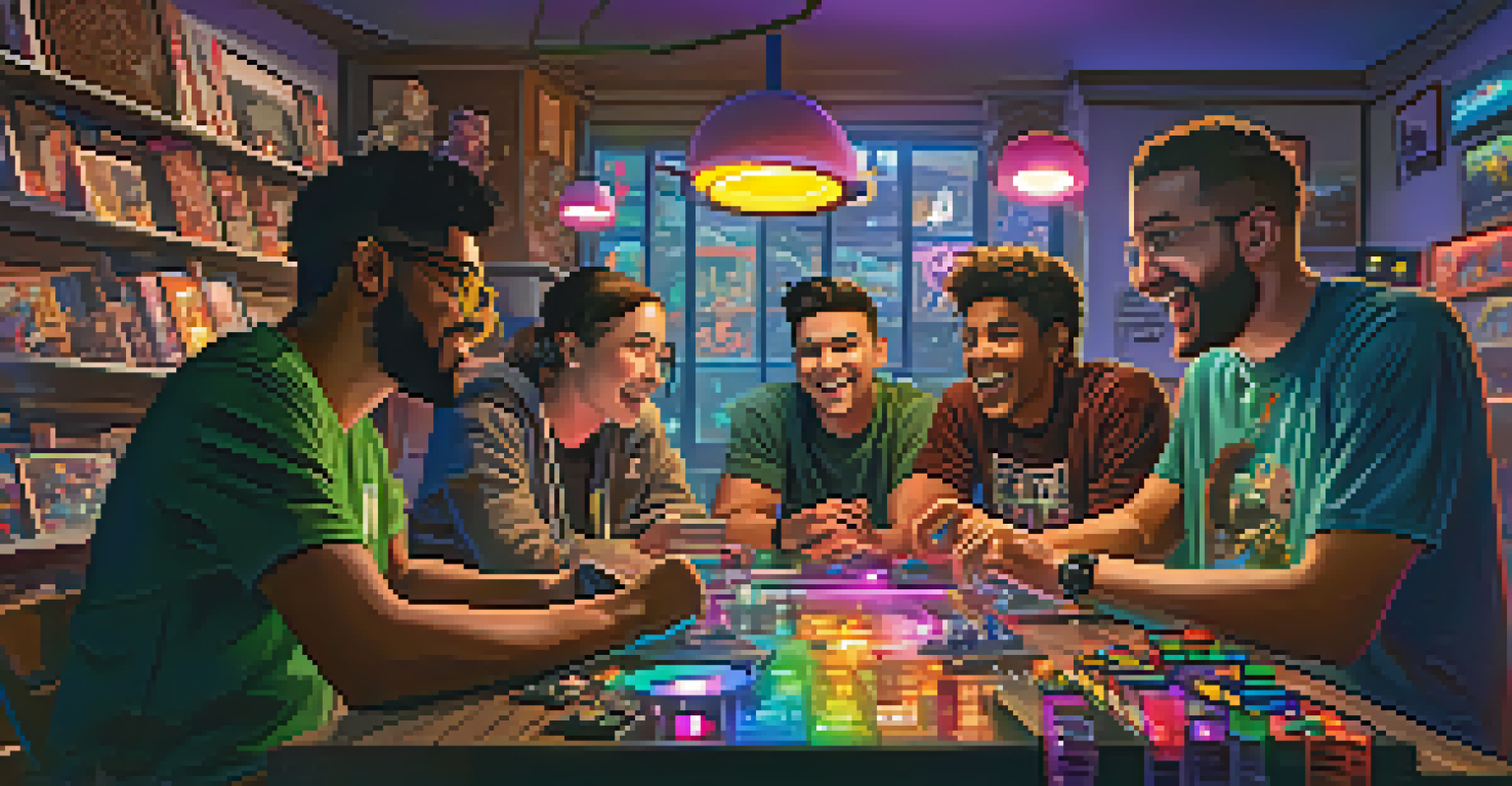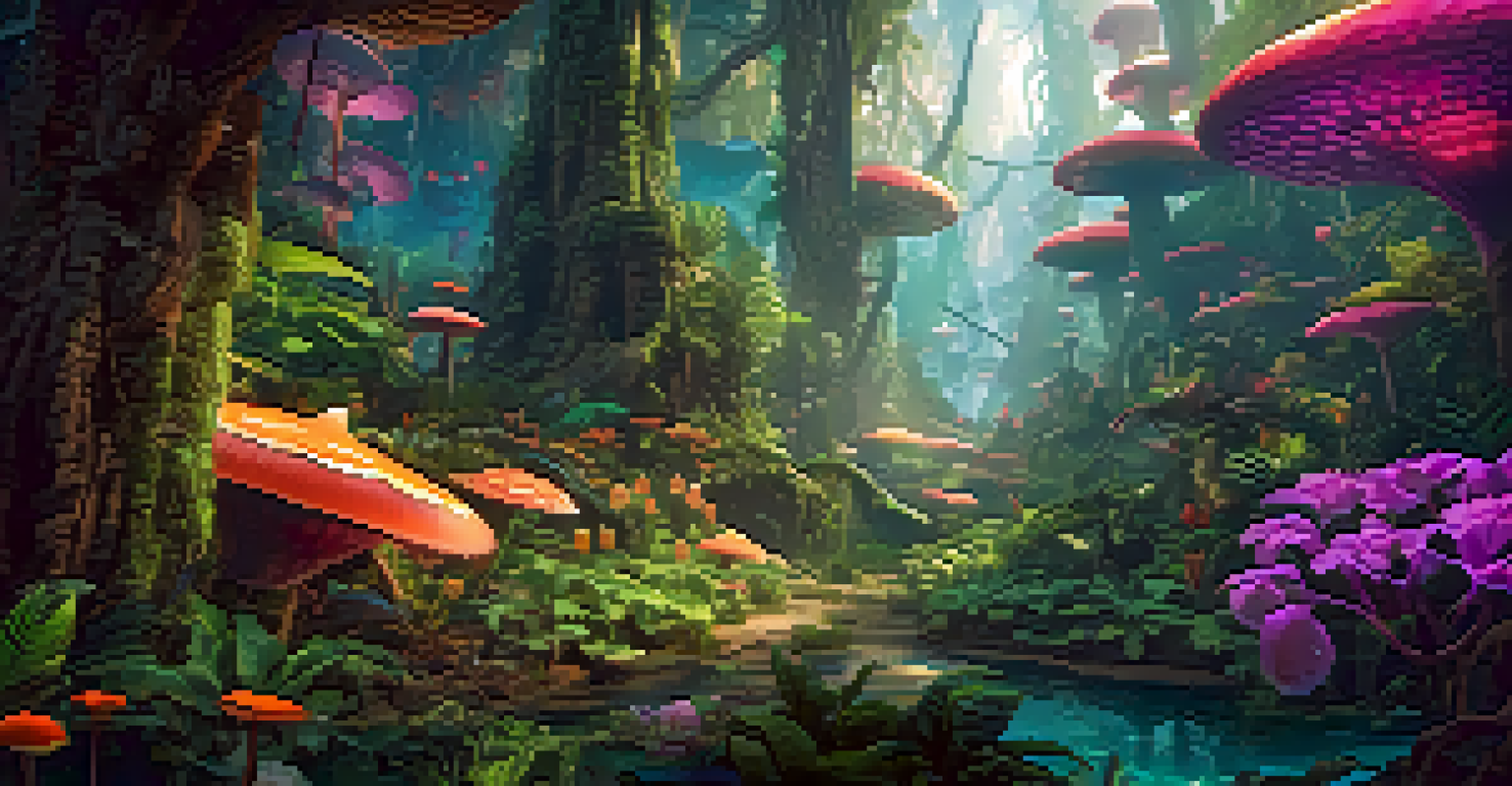Understanding NFTs: The Key to In-Game Asset Ownership

What Are NFTs and Why Do They Matter in Gaming?
NFTs, or non-fungible tokens, are unique digital assets that represent ownership of a specific item or piece of content, often using blockchain technology. In gaming, this means characters, skins, weapons, and other digital assets can be owned, bought, and sold by players. Unlike traditional in-game items that are often locked to a player's account, NFTs grant true ownership, allowing players to trade or sell them freely.
NFTs offer a new way to think about ownership in the digital world, allowing players to truly own their virtual assets.
This shift is significant because it empowers gamers in a way that traditional gaming models have not. Imagine spending hours leveling up a character only to find that you don't actually own it—it's merely rented from the game publisher. NFTs change this narrative, giving players a sense of real ownership and value for their time and effort.
As the gaming industry evolves, the integration of NFTs signals a new era where players can take their assets across different games, creating a more interconnected gaming experience. This innovation could revolutionize how we perceive value in gaming, turning it from a pastime into a legitimate economic activity.
The Role of Blockchain in NFT Ownership
Blockchain technology is the backbone of NFTs, providing a secure and transparent way to verify ownership. Each NFT is stored on a blockchain, making it nearly impossible to duplicate or forge, which is crucial in maintaining the item's value. This decentralized ledger ensures that when you buy an NFT, you have proof of ownership that is recognized across the digital landscape.

Think of blockchain as a digital notary service: every transaction involving an NFT is recorded and cannot be altered. This transparency builds trust among players, knowing that their investments are protected and verifiable. Whether you're buying a unique skin for your avatar or a rare in-game item, blockchain technology ensures that your ownership is legitimate.
NFTs Empower Gamers with Ownership
NFTs provide true ownership of in-game assets, allowing players to buy, sell, and trade their unique digital items freely.
Moreover, this technology allows for greater creativity in asset creation. Developers can embed royalties into NFTs, meaning that every time the asset is sold or resold, the original creator earns a percentage. This creates a sustainable ecosystem that benefits both players and creators, encouraging innovation in game design.
Benefits of NFTs for Gamers
One of the most compelling benefits of NFTs for gamers is the potential for real-world value. Players can earn money by selling their in-game assets, turning their gaming skills into a source of income. This is especially appealing for those who invest significant time mastering a game, as they can now monetize their achievements.
Blockchain technology is about empowering individuals and creating a new economic model that supports creators and players alike.
Additionally, NFTs foster a sense of community and engagement among players. By owning unique items, players can showcase their individuality and accomplishments, enhancing the social aspect of gaming. Imagine owning a rare sword that only a handful of players possess—this not only boosts your status in the game but also connects you with other collectors.
Finally, NFTs offer players the chance to participate in a growing market. As the demand for unique digital items increases, the potential for value appreciation also rises. Gamers can view their NFT collections as investments, similar to collecting rare trading cards or art, but with the added benefit of being usable within the game.
Challenges and Concerns Surrounding NFTs
Despite their potential, NFTs in gaming are not without challenges. One significant concern is the environmental impact associated with blockchain technology, particularly proof-of-work systems that require substantial energy consumption. This has raised questions about the sustainability of NFTs and their long-term viability in gaming.
Another issue is the possibility of market volatility. Just like any investment, the value of NFTs can fluctuate dramatically, leading to potential losses for gamers. This unpredictability can be concerning, especially for players who may not fully understand the risks involved in buying and selling digital assets.
Blockchain Ensures Secure Transactions
Blockchain technology underpins NFTs, offering a secure and transparent way to verify ownership and maintain the value of digital assets.
Additionally, there are concerns about accessibility and inclusivity. Not all gamers have the same financial resources to invest in NFTs, which could create a divide between players who can afford these assets and those who cannot. As the gaming community continues to expand, it’s essential to address these challenges to create a fair and equitable environment for all players.
How NFTs are Being Used in Popular Games
Several popular games have already begun integrating NFTs, showcasing their potential in the gaming world. For instance, games like 'Axie Infinity' have created entire economies based on trading digital creatures, where players can breed, battle, and sell their Axies as NFTs. This game has demonstrated how players can earn significant income by participating in its ecosystem.
Another example is 'Decentraland,' a virtual reality platform where players can buy, sell, and build on parcels of land using NFTs. This game allows users to express their creativity while also investing in virtual real estate, further blurring the lines between gaming and real-world economics. Players are not just participants; they are stakeholders in a thriving digital community.
These examples illustrate the versatility of NFTs in gaming, proving that they can enhance player engagement while providing tangible benefits. As more developers explore the potential of NFTs, we can expect to see an even broader range of applications, making gaming more immersive and rewarding.
The Future of NFTs in Gaming
Looking ahead, the future of NFTs in gaming appears promising. As technology continues to evolve, we can anticipate more seamless and user-friendly ways to engage with NFTs. This includes improved interfaces for buying, selling, and trading assets, making it easier for players of all skill levels to participate in the NFT market.
Moreover, the integration of NFTs could lead to innovative gameplay experiences. Imagine games where players can collaborate to create unique items or where the community collectively influences the game's narrative through their NFT ownership. This level of interaction could redefine how players engage with their favorite titles, creating a more dynamic and personalized gaming experience.
NFTs Create Real-World Value for Players
Gamers can monetize their skills by selling in-game assets as NFTs, turning their achievements into potential income sources.
Ultimately, the successful adoption of NFTs in gaming will depend on addressing current challenges while fostering a vibrant community. If done right, NFTs could transform the gaming landscape, allowing players not only to enjoy their favorite games but also to invest in and shape the future of the virtual worlds they inhabit.
Getting Started with NFTs in Gaming
If you're interested in exploring the world of NFTs in gaming, the first step is to educate yourself about the process. Familiarize yourself with blockchain technology and various NFT marketplaces where you can buy, sell, and trade digital assets. Platforms like OpenSea and Rarible are popular starting points for beginners.
Next, consider creating a digital wallet to store your NFTs securely. Just like you wouldn't keep valuable items in an unsecured location, having a digital wallet ensures that your assets are safe from potential hacks or losses. Wallets like MetaMask are widely used and can connect to various marketplaces seamlessly.

Finally, start small by purchasing inexpensive NFTs or participating in community events related to your favorite games. Engaging with other players and creators can provide valuable insights and help you build your collection. As you gain experience, you'll find that the NFT space offers exciting opportunities for both enjoyment and investment in the gaming world.